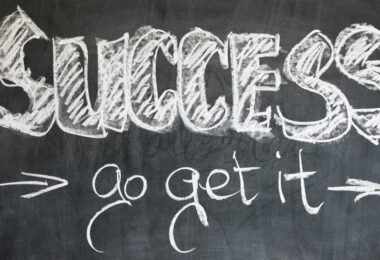By John McLachlan, co-author of ‘Rest. Practise. Perform.’
If you run your own business, you will set goals, and these goals will play a huge part in assessing the success of your venture. But hitting targets shouldn’t be your only metric. After all, you may be setting your bar too low and not performing as well as you can. As any football fan knows, teams can achieve wins without playing well, but without consistently performing to a high standard, true success is almost certainly out of reach. It’s the same in business. And there are many lessons to be learned from elite sports such as football, tennis, and car oriented sport, such as Formula One.

The 100% Performance Fallacy
Elite sports professionals operate within a defined “performance window,” channelling maximum focus and energy during critical moments. This approach allows them to perform sustainably and achieve better results. Businesses can adopt this concept, recognising that not every task requires 100% effort. By understanding the importance of designated performance windows, you can optimise energy for key tasks while efficiently managing other aspects of work.
Effort vs. Performance
A common misconception is equating effort with performance. At your child’s sports day, it’s okay for everyone to get a ribbon or sticker for participating, but in elite sports, rewards are based on outcomes, not just effort. Similarly, a business should shift from acknowledging hard work alone to defining clear performance outcomes. By aligning rewards with actual results, companies can encourage a culture where energy is directed toward achieving tangible goals, contributing meaningfully to the business.
Rethinking Rest
Rest is often misunderstood as simply taking a holiday. Elite sports master the art of taking the right kind of Rest, a practice frequently overlooked in organisational settings. In sports, Rest involves activities that rejuvenate the body and mind. For example, footballers commonly play golf during the close season; professional golfers hit the gym after competitive rounds to balance the body after many repetitions and tennis players cool down using an exercise bike. They don’t just perform and then sit still.
If you run a business, you should recognise the value of incorporating Rest into the performance cycle. Instead of perceiving Rest as a weakness, a company can design tailored rest phases that enhance overall performance. If your work involves a lot of focused thinking, you may need mental rest, so perhaps working more practically or in collaboration with others for some time will give you respite from that aspect of your work. Whether it’s emotional or mental Rest, aligning rest strategies with specific performance needs can be the secret sauce for sustained success.
Conclusion
Businesses frequently struggle to assess true performance, which is often hindered by pervasive myths. As a business leader, you can reshape your approach to performance by drawing insights from elite sports, which have successfully debunked these myths. Embracing a nuanced understanding of effort, optimising performance windows, and redefining Rest can pave the way for sustainable success in the corporate arena.
About the Author
John McLachlan is co-author of ‘Rest. Practise. Perform. John’s goal Is to help leaders and organisations find a working rhythm that delivers top performance while prioritising people and their health.
For more information click here.










Leave a Comment
You must be logged in to post a comment.